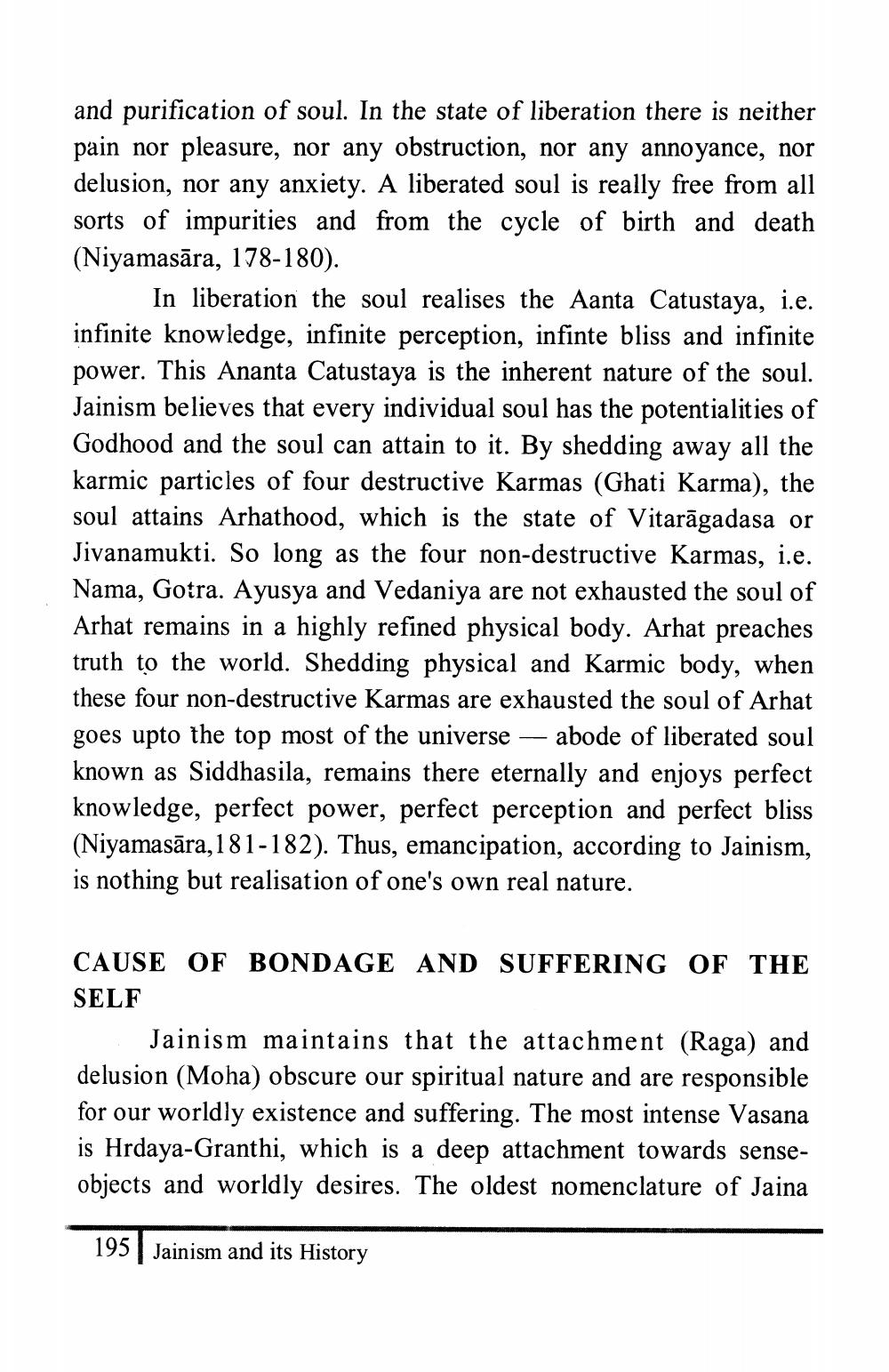________________
and purification of soul. In the state of liberation there is neither pain nor pleasure, nor any obstruction, nor any annoyance, nor delusion, nor any anxiety. A liberated soul is really free from all sorts of impurities and from the cycle of birth and death (Niyamasāra, 178-180).
In liberation the soul realises the Aanta Catustaya, i.e. infinite knowledge, infinite perception, infinte bliss and infinite power. This Ananta Catustaya is the inherent nature of the soul. Jainism believes that every individual soul has the potentialities of Godhood and the soul can attain to it. By shedding away all the karmic particles of four destructive Karmas (Ghati Karma), the soul attains Arhathood, which is the state of Vitarāgadasa or Jivanamukti. So long as the four non-destructive Karmas, i.e. Nama, Gotra. Ayusya and Vedaniya are not exhausted the soul of Arhat remains in a highly refined physical body. Arhat preaches truth to the world. Shedding physical and Karmic body, when these four non-destructive Karmas are exhausted the soul of Arhat goes upto the top most of the universe — abode of liberated soul known as Siddhasila, remains there eternally and enjoys perfect knowledge, perfect power, perfect perception and perfect bliss (Niyamasāra, 181-182). Thus, emancipation, according to Jainism, is nothing but realisation of one's own real nature.
CAUSE OF BONDAGE AND SUFFERING OF THE SELF
Jainism maintains that the attachment (Raga) and delusion (Moha) obscure our spiritual nature and are responsible for our worldly existence and suffering. The most intense Vasana is Hrdaya-Granthi, which is a deep attachment towards senseobjects and worldly desires. The oldest nomenclature of Jaina
195
Jainism and its History




